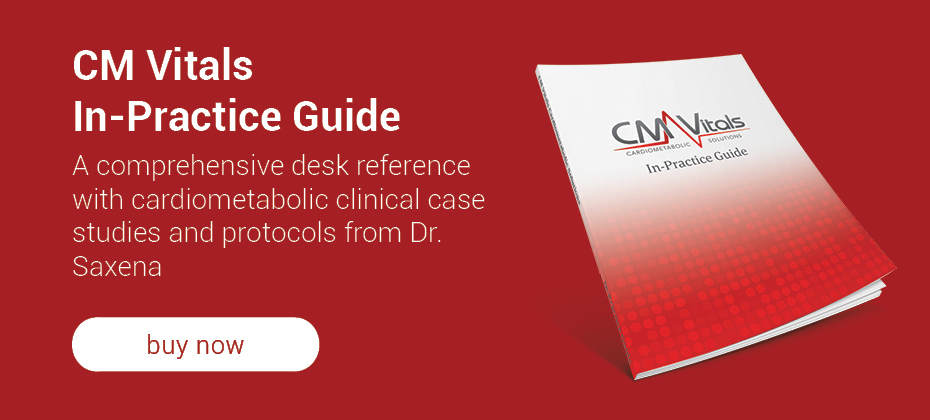Statins have been the cornerstone of heart disease prevention in the conventional medical model for a long time. However, there is a growing resistance to using this prescription among patients. More and more, our culture is questioning the slippery use of pharmaceuticals as the panacea for the complex, chronic disease epidemics of our time, and statins are at the forefront of this shift.
In the world of functional medicine, many practitioners report a patient request (or even a demand) to not initiate or deprescribe a statin Rx. So, what is a practitioner to do when the current standard of care recommends statin therapy and a patient has a genuine interest to avoid it?
There is not a one-size-fits-all answer to this question, as all treatment should be personalized. Here are two common patient scenarios to consider for individualizing statins in the management of hyperlipidemia:
Patient has multiple cardiometabolic risk factors, two or more of them are sub-optimally controlled, and the patient is already on a statin for hyperlipidemia. Let’s assume you reviewed his advanced lipoprotein profile, did a solid lifestyle history, and the patient has no known side effects from his statin use. The patient and you determine that there is more than a mild gap between the current labs and an ideal state of function. In partnership, you could address three main therapy goals: 1) create and begin a lifestyle medicine prescription aimed at correcting the underlying inflammation and insulin resistance signals that are driving risk; 2) add bergamot to support the existing statin to get closer to or at goal with desired lipoprotein and inflammation markers; and 3) mitigate negative impacts of statin use by replacing key nutrients such as CoQ10, selenium, etc. The short-term plan would be to use lifestyle change and bergamot to get to goal. The long-term play is to reverse inflammation and insulin resistance so the patient can either reduce or stop the statin prescription when calculated or measurable risk is lower.
Patient has a few cardiometabolic risk factors, but two or less of them are minimally off-target according to her labs and anthropometric measurements. The patient is not on a statin but still needs some support to reduce her cardiovascular risk. You decide that she needs to reduce overall inflammation and insulin resistance and add bergamot and fish oil. First, consider creating and implementing a solid lifestyle prescription so that epigenetic signals are being addressed through a long-term lifestyle medicine strategy. Recommend key supplements to address the existing dysfunction in the short term. Over the next three to six months, you track her labs and measurements and find she hit her personalized targets for LDL-P, sdLDL, triglyceride, HDL-P, insulin and hsCRP. You commend her for shifting her lifestyle, reinforce the supplements that are bolstering the anti-inflammatory, insulin-sensitizing signals, and remind her that the response she has is due to a combination of lifestyle and nutrient therapies. If she then becomes a powerhouse of lifestyle medicine and is markedly better with her levels, consider tapering her off some of her dietary supplements. Be sure to see her regularly to reinforce her good behavior or reset her therapeutic care plan if life throws her off-track in the interim.
Dietary supplements play an integral and powerful role in modulating and supporting beneficial epigenetic signals. However, they are in no way a replacement or solitary management strategy to treat the underlying causes of complex, chronic disease. We must be clear about what does the heavy lifting in creating positive clinical outcomes for our patients—a comprehensive lifestyle prescription. If we are to get people off statins and other undesired prescriptions, patients must know the power of lifestyle medicine.

Shilpa P. Saxena, MD is a Board-Certified Family Practice physician whose passion and purpose come to life through sharing her innovative patient education and practice management solutions in her classic ‘keep it simple’ style. She serves as Faculty with the Institute for Functional Medicine, the Arizona Center for Integrative Medicine, Osher Center for Integrative Medicine at the University of Miami Miller School of Medicine, the Metabolic Medical Institute at George Washington University and most recently, joined the Lifestyle Matrix Resource Center serving as the Clinical Expert for the CM Vitals Program. Dr. Saxena is an expert in the Group Visit medical model, creator of Group Visit Toolkits, and co-author of The Ingredients Matter: India.




